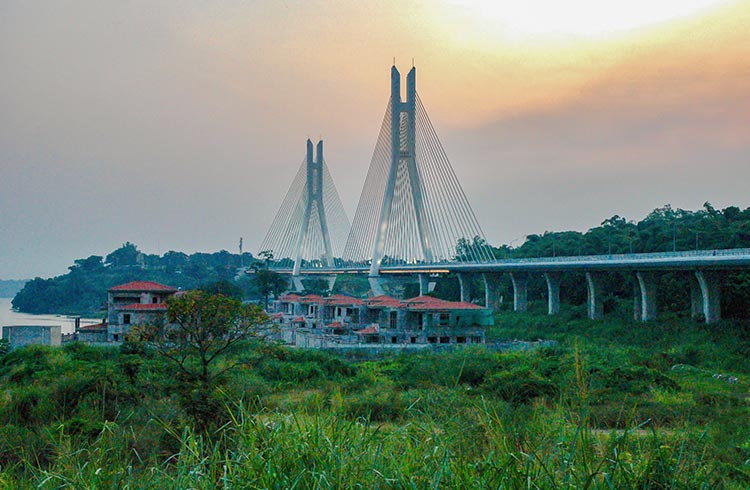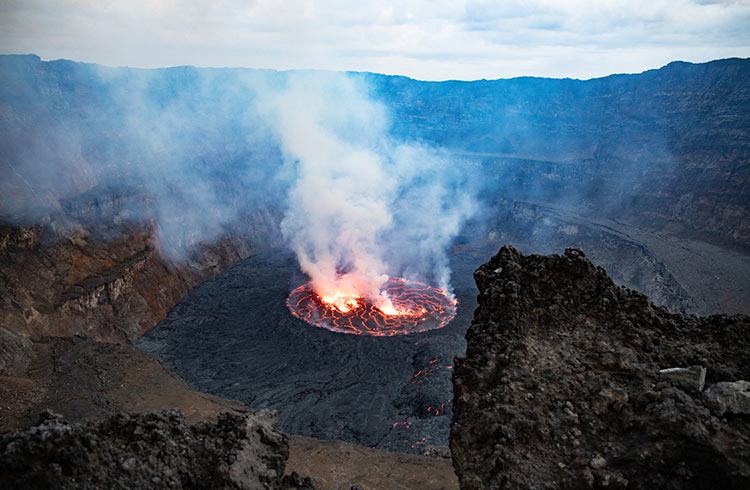Is Republic of the Congo Safe for Travelers? Essential Tips
Republic of the Congo (also known as Congo) is a rarely traveled, small west-central African country known for its rainforests and wildlife. But how safe is it as a destination for travelers?
 Photo © Getty Images/Claudine Weber-Hilty / EyeEm
Photo © Getty Images/Claudine Weber-Hilty / EyeEm
Not to be confused with the much larger DRC, the Republic of the Congo (ROC) sits on the northwestern border and became independent from France in 1960.
Here are our tips to stay safe if you are traveling in the Republic of the Congo.
Is The Republic of the Congo safe?
The Republic of the Congo is a very rarely visited developing nation in central Africa, and its official language is French. The largest cities are the capital, Brazzaville, which is located on the Congo River, and Pointe Noire on the coast. Tourist infrastructure is limited here, and petty street crime does occur on the streets in Brazzaville.
In the neighborhoods of Poto-Poto, Bacongo, and Makelekele, travelers have reported verbal harassment. Vendors often physically grab potential clients or say "Mondele" (white person) to get their attention. Women traveling alone will experience more verbal harassment than men. Pretty crime is more of a risk in large crowds, so keep your belongings safe or totally out of sight to avoid theft.
The beaches are a common place for crime in Pointe Noire. Avoid going to the beaches at night, and keep your valuables safe and never leave them on a towel at the beach. Try to avoid the market areas after dark as well.
Is it safe for LGBTQ+ travelers?
While there are no laws against homosexuality in the Republic of the Congo, many local and visiting LGBTQ+ travelers have faced discrimination and harassment.
For your own personal safety, keep public displays of affection to a minimum, and avoid talking about sexual orientation to avoid causing offense.
Safe transport in The Republic of the Congo
Roads in Brazzaville are relatively well maintained. If you want to travel south from the capital, you should consider flying, as road and train travel from Brazzaville to Pointe Noire is not recommended for safety concerns.
There is a well-paved highway to go north towards the city of Ouesso.
The Republic of the Congo experiences two rainy seasons, the first from February–May and again from September–December. During the rainy season, non-primary roads are not reliable, and may be inaccessible, so be prepared for significant delays if you are traveling during these seasons.
Traveling by bus is not recommended, and while there are no registered taxi companies in Brazzaville or Pointe-Noire, taxis are required to have an operator permit, but many are privately-owned operators. There have not been any reported incidents with casual use of taxis in Brazzaville or Pointe Noire, however, here are a few tips for safe travel and use of taxis in Congo:
- Hire only taxis painted in the authorized green and white color in Brazzaville or blue and white in Pointe Noire. Only these taxis are licensed to operate in Congo
- Taxis are not metered, so negotiate a fare before taking off, and carry small bills to pay (and avoid being short-changed)
- Take note of vehicle registration plates as you get in, just in case any incidents or issues with taxi operators occur
- Taxis are not regularly inspected and in some cases will not have functioning seat belts, working windows, or doors
- While taxis are a convenient and relatively safe alternative for transportation in Brazzaville and Pointe Noire, avoid using any other taxi operators for your own personal safety.
Civil unrest
Although terrorism has not been a recent problem in the ROC, a former rebel group called the Ninjas resides in the Pool region, specifically in and around the village of Kinkala. Although they do not specifically target travelers, they sometimes set up roadblocks for highway robberies.
Prior to your trip, you should pay close attention to events in the Democratic Republic of Congo (DRC), which experiences civil unrest, that can spill over from Kinshasa to Brazzaville. For the most up to date security and safety information on the DRC, refer to your government's travel advisories.
Police corruption in the Republic of the Congo
Police in the ROC often stop foreigners and accuse them of minor infractions – and most of the time, these are not legit. Instead of writing a ticket, the police request visitors pay a fine on the spot – a bribe.
Avoid paying these bribes, as they encourage bad habits for police in the future.
Travelers should always carry a form of identification (just a copy of your passport), and you should only carry a small amount of cash, and avoid walking around with your credit cards.
Medical emergencies
Local health infrastructure is not great, and you should carry all medications into the country with you to avoid not having access to pain medication or prescription drugs.
Tips to stay safe
- Avoid large crowds and demonstrations
- Vary routes and times: do not be predictable in daily routines
- Avoid walking alone
- Do not carry credit cards, or your driver's license or other important documents around town
- Always carry some form of identification
- Do not leave valuables such as money, jewelry, or passports in an unoccupied room unless they are secured in a proper safe (even this is not foolproof)
- Know where the fire extinguishers and fire escapes are located
- Familiarize yourself with hotel staff.
Related articles
Simple and flexible travel insurance
You can buy at home or while traveling, and claim online from anywhere in the world. With 150+ adventure activities covered and 24/7 emergency assistance.
Get a quote
No Comments